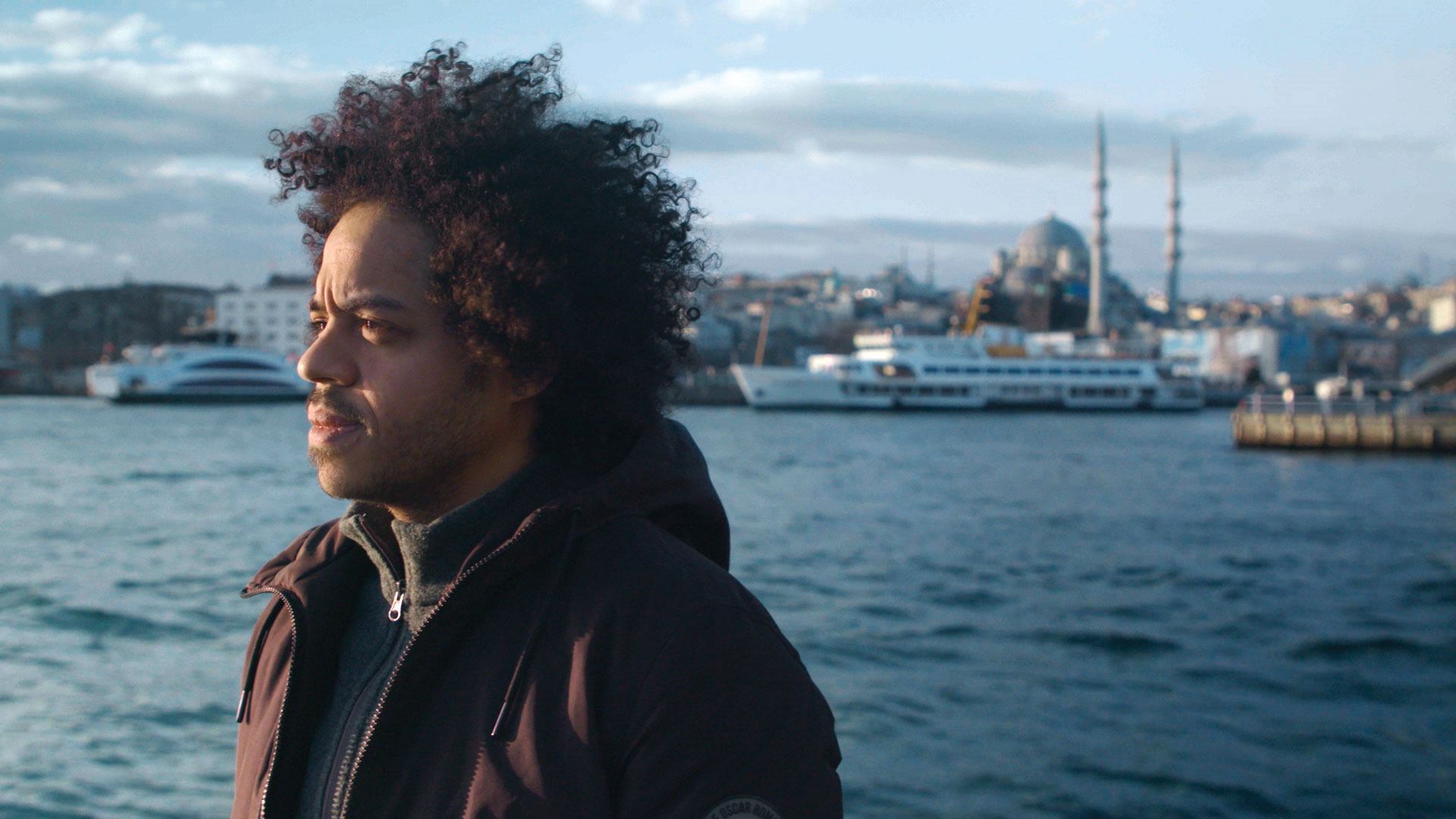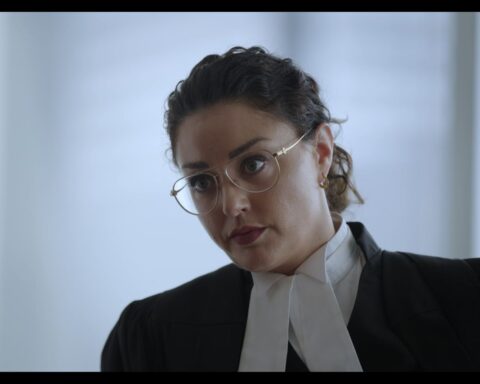Subject
(USA, 97 min.)
Dir. Camilla Hall, Jennifer Tiexiera
Subject is the documentary that every non-fiction fan needs to see. The film confronts a question, perhaps the ultimate question, with which documentary filmmakers must wrestle. Directors Camilla Hall and Jennifer Tiexiera consider the responsibility that filmmakers have to their subjects when telling their stories. They tackle this debate through a novel approach by checking in with figures from notable documentaries. The strategy allows them to unpack all the pros and cons of opening one’s life for the screen. There are accounts of lives transformed and consumed by the filmmaking process. Some people feel cheated, violated, and outraged, while others say that participating in a documentary genuinely proved beneficial. There are no easy answers here, though, and that’s refreshing. Subject intuitively synthesizes the most hot-button topic in documentary and invites audiences to consider where the art form should go.
The cast of familiar characters covers key corners of the debate. In one corner is Arthur Agee of Hoop Dreams fame. He recalls the seven-year journey making the landmark doc in which director Steve James and producers Frederick Marx and Peter Gilbert shadowed him as he pursued his love for basketball. While Agee generally cites Hoop Dreams as a positive, he unpacks the controversial scene that caught his father buying drugs. Agee asks how fair it was to release that scene years after his dad was sober, but he also credits it for giving his father a wake-up call that helped him forge a new path in life.
True Crime Trials
Meanwhile, Jesse Friedman of Andrew Jarecki’s Capturing the Friedmans has a complicated relationship with the film in which he appears. Friedman considers how the film galvanized support for his appeal when charges against his father for pedophilia ultimately implicated him for similar crimes. He admits that the film brought attention to his wrongful imprisonment, and he credits Jarecki for keeping their relationship active after the film was done. However, Friedman tells Hall and Tiexiera that he can’t shake the film’s shadow. Capturing the Friedmans defines his life. Everyone knows him as a formerly presumed pedophile. Even people who’ve seen the film cross the street when they recognize him. The film overwhelms his life and relationships, causing a new emotional trauma following his incarceration. He’s a prisoner of a different sort.
Similarly, Margie Ratliff looks back on her sentence with The Staircase. The 2004 series, like Capturing the Friedmans, helped usher in a new era of documentary through the popularity of true crime. However, as Ratliff considers the impact of participating in the doc at her father’s request because he thought it would help his case—he was on trial for murder, accused of throwing their mother down the stairs—Subject asks how and when someone can truly be a willing participant in a documentary. Circumstances inspire lifetime commitments with docs. Ratliff becomes visibly distressed as she discusses the revival of The Staircase on Netflix and a dramatic adaptation that makes primetime entertainment from her trauma. As with Friedman’s story, Ratliff illustrates how being in a documentary can be a life sentence. One can’t control public discourse or perception once the doc goes into the wild.
From Ordinary People to Icons
For Ahmed Hassan, key subject of Jehane Noujaim’s Oscar nominee The Square, talks about how he went from being the one behind the camera to being the person in front of it. While Hassan conveys a sense of pride for the film’s snapshot of the occupation movement in Egypt, he echoes the other subjects by noting how much the film defines and consumes his life. Moreover, he lives with concerns for mobility, safety, and freedom as the globally accessible Netflix doc put him on the radar of a dangerous regime. Hassan credits The Square for adding to a global movement, something that Winter on Fire director Evgeny Afineevsky echoes when describing how his own film about the fight for freedom in Ukraine modelled The Square, but Hassan carries a personal cost as the prototype.
Other stories, like that of The Wolfpack star Mukunda Angulo, ask how documentaries compensate their participants. Subject recaps Angulo’s role in Crystal Moselle’s film about a mother and seven children, one of which is Mukunda, as they grow up confined to an apartment and know little of the world outside of the old Hollywood movies their abusive father leaves to occupy them. Mukunda tells the filmmakers about the thrill of being in his own movie after seeing his life filtered through movies. For him, the whirlwind fame brought by The Wolfpack’s Sundance win was a true high. For his mom, though, it was a bit too much.
The Bigger Questions
This segment of Subject bridges the difficult question of compensation. Hall and Tiexiera let figures in the field, including filmmakers Davis Guggenheim, Kirsten Johnson, Sam Pollard, Bing Liu, Assia Boundaoui, Joe Brewster, and Michèle Stephenson bounce off industry peers like TIFF programmer Thom Powers, or figures like Pat Aufderheide and Sonya Childress to address all sides of a thorny situation. Whether one risks compromising the integrity of a film by paying a participant or whether a filmmaker supposedly preserves the integrity of a work by compensating characters for their time is a hot question the film lets audiences answer.
Even the titular term “subject” frames the film with a loaded term. Interviewees debate whether “characters,” “participants,” or “people” are preferred usage since “subject” evokes a passé passivity. Speakers in Subject look back to the early days of docs like Robert Flaherty’s Nanook of the North and situate the traditional subject-filmmaker relationship through a colonial lens. They note that the dynamic evokes passivity with a person to be looked at by a filmmaker. The person who holds the camera, in this set-up, wields a disproportionate sense of power.
The Power Switch
Most notable, however, are Subjects choices in, well, subjects. (Or characters/participants/people, etc.) The film features none of the filmmakers behind the docs that included Agee, Friedman, Ratliff, Hassan, and Angulo. (Bing Liu proves the only real exception as both subject and director of his autobiographical breakthrough Minding the Gap.) Kirsten Johnson observes this facet when interviewed about her own work. It’s a smart aspect of flipping the script and illustrating the simple choice that filmmakers have. Great authority exists in the choices for shooting, framing, and editing. The filmmakers had their say, now the subjects have theirs. The grind of a film premiere and whirlwind publicity, tour, moreover, need time to distill. Subject lets these people take stock of the full experience.
Subject might play better as inside baseball for audiences familiar with all the faces and films that serve as cutaways amid the commentary, but Hall and Tiexiera tackle many essential questions about authorship, ethics, and storytelling. Roll in the altruistic nature of some documentaries as filmmakers with shoestring budgets bring important stories to light, and Subject provides ample fodder for some of the toughest, yet most important debates that the film industry should have. But perhaps we can all agree on one point when it comes to telling others’ stories: it’s complicated, and not a responsibility to take lightly.













